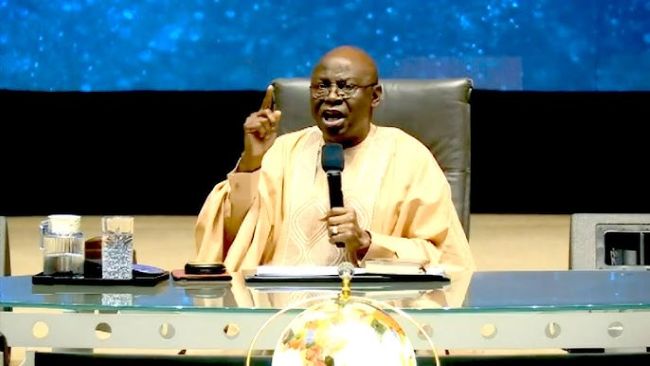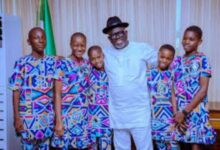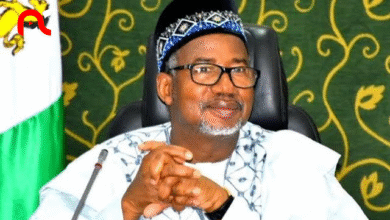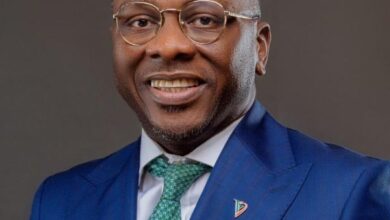Pastor Tunde Bakare’s Resurrection Call to a Broken Nation

On Easter Sunday, a day laden with symbolism of resurrection and hope, Pastor Tunde Bakare stood behind the pulpit—not merely to preach, but to deliver a national eulogy infused with a prophetic cry for Nigeria’s rebirth. In doing so, he reminded us, once again, that while pulpits in Nigeria have often become comfort zones of prosperity preaching, his remains one of the few still carrying the weight of prophetic truth.
Bakare’s message, titled after Abraham Lincoln’s timeless dictum—“Let the people know the truth and the country is safe”—was a clarion call to conscience, and perhaps more critically, a mirror held up to a nation on the brink.
A Nation of Dry Bones
Drawing from the Book of Ezekiel, where the prophet finds himself in a valley of dry bones, Bakare did not mince words. The question posed in the scripture—“Can these bones live?”—is no longer rhetorical in the Nigerian context. From Bassa in Jos, where over 50 citizens were recently buried in a mass grave, to the grinding hunger, insecurity, and helplessness that now define daily Nigerian life, the question feels tragically present.
The answer, for many Nigerians, Bakare conceded, might be a weary “No.” And yet, he argues, this is precisely the time when truth becomes oxygen, and leadership must shed its indulgence in lies, propaganda, and the politics of illusion.
Between Pharaoh and Tinubu
In a rare moment of spiritual-political symmetry, Bakare recalled his earlier January 2025 counsel to President Bola Ahmed Tinubu—an appeal framed in the story of Joseph and Pharaoh in the Book of Genesis. Just as Pharaoh heeded Joseph’s interpretation of his troubling dreams to save Egypt from famine, so too did Bakare urge Tinubu to adopt humility, insight, and receptivity to truth as prerequisites for governance.
But the months since that counsel, Bakare lamented, have only revealed a government deaf to wisdom and divorced from moral courage. The President’s ears, he implied, are tuned to flatterers, not prophets.
Descent Into Authoritarianism
In perhaps the most blistering portion of his speech, Pastor Tunde Bakare painted a portrait of a government lurching toward autocracy:
- In Rivers State, a political theatre unfolds where “puppets on strings” dance to scripts from Abuja.
- In the National Assembly, Bakare observed a disturbing rush to dismantle constitutional order and rubber-stamp executive overreach.
- The silencing of Senator Natasha Akpoti-Uduaghan, one of the few voices of moral dissent in the chamber, was emblematic of the broader effort to criminalize accountability.
He went further to describe Nigeria’s current trajectory as one leading to a mafia state—a nation where power is hoarded, dissent is crushed, and impunity is enshrined.
The Economic and Institutional Fallout
The implications of this political decay extend beyond the civic space. For a country already grappling with crippling inflation, investor uncertainty, and a battered currency, the erosion of constitutional norms only deepens the trust deficit between citizens and the state. Investors do not anchor their capital where the rule of law is optional and leadership is unpredictable.
As Bakare sees it, this is not merely a political crisis—it is a systemic one. And like a building weakened from its foundation, any moment of economic or social tremor could bring the house crashing down.
Between Prophecy and Policy
Yet, for all his rebuke, Bakare’s tone was not one of despair. Rather, it was reminiscent of the Old Testament prophets—a hard truth told in the hope of redemption. He called on Nigerians, especially the youth and the faithful, to stop seeing prayer as performance, and instead, to pair it with civic engagement, activism, and nation-building.
He called for leaders with “hearing ears and understanding hearts,” and a public no longer content with surviving on crumbs while the elite dance on gold-plated floors.
Final Reflections
Bakare’s Easter message was not merely a sermon; it was a diagnosis and a prescription. It offers no illusions, no shortcuts, and certainly no soft landings. But in a nation where truth has become revolutionary, and where silence has too often become complicity, such voices—rare as they are—must be amplified.
In a time when many pulpits have turned their backs on justice, Bakare has chosen to speak fire in a season of fog. Nigeria may not yet be in the grave, but without course correction, it is heading there fast. Whether or not the dry bones can live depends now—not just on God—but on what we the people, and our so-called leaders, choose to do next.











